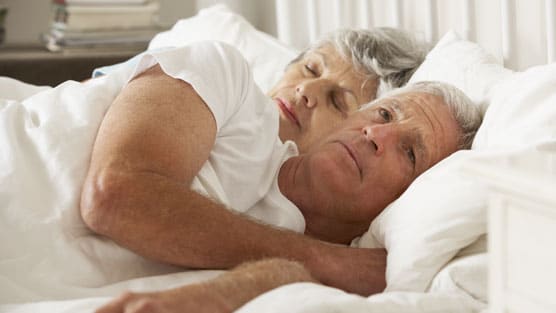For men under the age of 65, a good night’s sleep may have just been promoted from a “nice to have” to a “need to have.”
Investigators believe they have found a link between disrupted circadian rhythms and a greater risk of prostate cancer.
The scientists examined data from two studies done by the American Cancer Society that followed close to a half-million men each.
The researchers discovered that during the first eight years of follow-up, among men under the age of 65, subjects who got 3 to 5 hours of sleep per night had a 55 percent greater risk of dying of prostate cancer than men who enjoyed 7 hours of sleep per night.
Men who got 6 hours of sleep per night had a 29 percent higher risk than those who received seven hours.
For men 65 years or older, however, they showed no increases or reduction in their risk of death from prostate cancer, no matter how much sleep they got.
What’s the correlation? Nobody is completely certain yet.
One theory is that this may be due to the sleep-inducing hormone melatonin.
Low melatonin production is a condition sparked by insufficient and inadequate sleep.
Low Melatonin can cause increased genetic mutations, greater oxidative damage, reduced DNA repair, immune suppression and dis-regulation of a number of genes involved in the suppression of tumors.
Although these findings have shown links, the findings from this study should be considered preliminary.
Until they are conclusive, it is recommended that men make it a priority to get at least seven hours of sleep to possibly increase their odds of lowering prostate cancer mortality.


